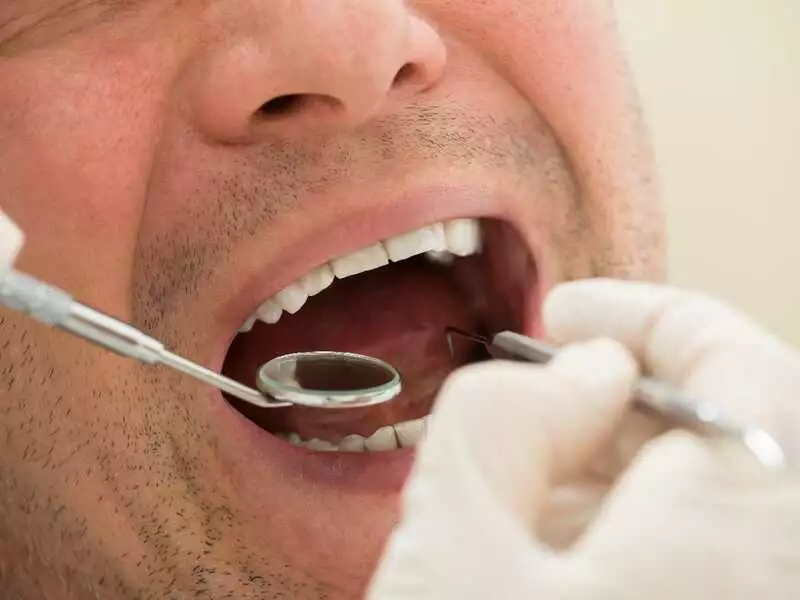Joint pain, problems with eyesight, the circulatory system and a weaker memory - these are the ailments most commonly complained of by the elderly. Far less frequently mentioned are the oral health problems that people over 50 suffer from. Dental caries, dry mouth and gum problems are the most common complaints of this age group. What can be done to get rid of them and enjoy your own teeth for as long as possible?
Gum disease
The risk of developing periodontitis increases with age, so it is most often older people who have problems with periodontal disease. With proper management, periodontitis can be completely cured, which is why early recognition is so important. Unfortunately, frequent delay with the commencement of therapy results in changes that may lead to lowering of the gum line, destruction of bone tissue in the jaw and mandible or loosening and falling out of teeth.
- Periodontitis is a very insidious disease and often goes on for a long time without any obvious symptoms. Smoking, poor diet, drinking alcohol and, above all, inadequate oral hygiene are the most common causes of periodontal disease. All of these factors encourage the accumulation of tartar and bacteria, which are the cause of chronic inflammation. In addition, in the case of women, estrogen levels decrease during menopause, which makes the gums more susceptible to inflammation , says Dr Stachowicz.
Periodontal disease cannot be underestimated, as chronic inflammation increases the risk of other serious conditions such as - stroke, kidney disease, rheumatic diseases, asthma or even heart attack.
Solution
The first thing to do is to take care of your oral hygiene and not just at home. At least once every six months, you should have a professional hygienization at the dentist's office, which consists of tartar removal, sandblasting and the application of fluoride to the teeth. Those with 'gum' problems should have a procedure to clean deep periodontal pockets using ultrasound. During daily oral hygiene, one should floss and rinse the mouth with astringent and antiseptic liquids. It is also worth remembering about a proper diet rich in natural yoghurt, white cheese, kefir, fish and poultry. These products are a source of B vitamins, which will help us in the fight against gum disease. Vitamin C, which reduces the risk of infection, can be found in red and green peppers, Brussels sprouts and spinach.

photo: panthermedia
Missing teeth
Losing a tooth is not only an aesthetic problem. It is first and foremost a health problem. Individual missing teeth can lead to loosening and loss of neighbouring teeth, thereby disrupting chewing function, which has an extremely adverse effect on the digestive system. In addition, missing teeth can cause speech defects, promote wrinkles and even lead to memory problems.
- Teeth are made up of tissues whose cells have a very limited ability to regenerate and are increasingly susceptible to damage and loss with age. In addition, over the years the enamel wears away and the teeth become more brittle and prone to mechanical injury. Many people ignore the problem of missing teeth, especially when it concerns the back teeth. This is a big mistake and can be associated with serious health consequences - including trouble chewing food properly. People with missing teeth often swallow food in large chunks, which leads to gastric problems and flatulence, among other things. For the sake of convenience, they also reach for products with a mushy texture, the eating of which leads to the disruption of the entire chewing apparatus. Interestingly, this is a very simple route to memory impairment in older people. This is because it has been proven that chewing food activates the structures in the brain that are responsible for it," explains the dentist.
Solution
The best solution to the problem is, of course, to replace missing teeth. Modern dentistry solutions help to restore its appearance and proper functioning. Single cavities can be reconstructed with dental implants, which give us the possibility of a perfect restoration of the natural dentition and restore 100% chewing power. If we want to fill a larger gap, we can opt for a prosthetic bridge fixed on the remaining teeth or place a partial denture, a good solution for people who have some of their own teeth and want to avoid them falling out. We can also use veneers to fill in the gaps of enamel worn down by age.









